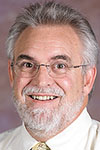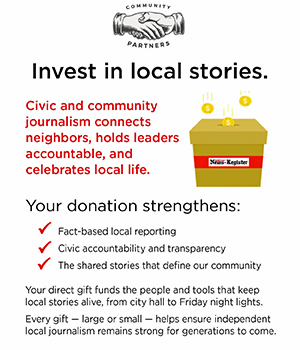Whatchamacolumn: Blanchet Farm treating alcohol disease
There is social response to realities described in a 2023 report by the National Institutes of Health (NIH), headlined: “Risky Alcohol Use: An Epidemic Inside the COVID-19 Pandemic.”
One sign is the June 6 open house at Blanchet Farm, located near the intersection of Hendricks Road and Abbey Road east of Carlton. Blanchet Farm, operated by the 70-year-old Blanchet House in Portland, is an agricultural-based, residential recovery space for men “to heal through meaningful work surrounded by animals, gardens, a woodshop and more.”
Blanchet Farm operated under the local radar for decades, serving mostly men from the Portland area. But a News-Register feature last year highlighted the farm’s construction project for a new $9 million living facility, and Blanchet is inviting local leaders to learn more about the program’s “positive impact on the community.”
We also have seen expansion in McMinnville of addiction/recovery programs such as Provoking Hope, and homeless shelter programs such as Gospel Rescue Mission and the soon-to-open Navigation Center.
One factor driving needs for such services is increased alcohol use, says George Koob, Ph.D., director of the National Institute on Alcohol Abuse and Alcoholism. A 2023 NIH interview described Koob as “an expert on the biology of alcohol and drug addiction who has been studying the impact of alcohol on the brain for more than 50 years.”
Koob said that nationally, during the first two years of the COVID-19 pandemic, “The number of death certificates listing alcohol as a factor soared from 78,927 to 108,791 — an increase of nearly 38 percent. We saw the largest increases in deaths related to drinking among people between the ages of 25 and 44.”
Historically, said Koob, in time of crisis, alcohol sales and consumption spike. He cited the World Trade Center bombing, Hurricane Katrina and the pandemic as examples of times of more alcohol abuse, mostly in sales of hard liquor.
Significant increases in alcohol consumption send more people to hospitals and liver transplant centers, and drive more people into personal and social dysfunction. Risky alcohol habits, in times of crisis, have a way of becoming a life-shattering disease now called alcohol use disorder.
Koob’s simple advice for alternative responses to crisis: “Interact with your fellow human beings … Exercise … Know the facts (about alcohol and its effects).”
One at a time, programs such as Blanchet Farm are turning threatened lives around. For those thinking about attending the mid-afternoon social gathering on June 6, there are promises of Serendipity ice cream, live music, tours and animals.
Jeb Bladine can be reached at jbladine@newsregister.com or 503-687-1223.













Comments